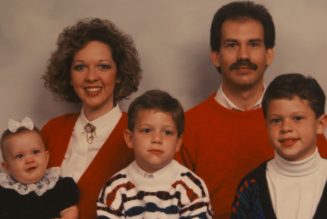
Love Is Not Blank Check Affirmation
“Will you support me in this decision?” my friend asked me.
But I couldn’t support his decision. It wasn’t a problem of not wanting what’s best for him. In fact, it was because I wanted what’s best for him that I wasn’t able to go along with him. The decision would have only brought more problems, and my love for him didn’t want him to suffer needlessly.
Yet my reasons for disagreeing hardly mattered to him. What really mattered, it seemed, was that I as his friend would not “affirm him” and the course he was determined to follow. Though I explained why I couldn’t support him in his unwise decision, he was still deeply hurt.
My friend is far from alone in this regard. As a case in point, social media platforms are littered with quotes that express similar sentiments to his own:
“True friends accept you no matter what.”
“A true friend doesn’t care if you’re broke, if you’re acting like a [jerk], or if your life is a mess—they love you for who you are.”
“Be who you are—because those who mind don’t matter, and those who matter don’t mind.”
“Be yourself and the right people will love you.”
“A friend is someone who listens and doesn’t judge.”
“Stop trying to fix your friends. Love accepts them for who they are.”
And my personal favorite: “A friend will help you hide. A good friend will help you hide the body!”
On the surface, these quotes may seem to contain a kernel of truth, but a little prodding reveals deep and disturbing problems in them all. Should we say that a true friend accepts us no matter what? Even if we are lying, murderous psychopaths? Is it true that a real friend doesn’t care if you’re broke, acting like a jerk, or in a self-made mess? Wouldn’t true friends be the ones who do care, precisely because they love you and want you to stop ruining your life? The same goes for all the “be who you are” type quotes. What if “who you are” is selfish and prideful (as the Scriptures say is true of us all)? Doesn’t a true friend want those parts of you to change?
French Kissing Your Enemies
Despite the obvious problems in each of those quotes, they are shared, liked, and repinned thousands of times each day on every social media platform. The Scriptures tell us what is going on here, and it isn’t pretty: “Faithful are the wounds of a friend; profuse are the kisses of an enemy” (Prov. 27:6).
In other words, we are locking lips with liars. We are French kissing our enemies while calling them friends, and often ignoring true friends who care enough to speak the truth in love.
Why do we do this? The short answer is that we very badly want to feel loved and accepted. Wanting love and acceptance is not a problem, by itself. After all, God designed us to be loved and accepted by him. The problem begins when we go looking for affirmation in all the wrong places, namely, other human beings who are sinful and flawed just like us instead of God’s love for us in Jesus.
And notice where people hungry for love and acceptance turn to be filled: to their enemies!
God calls these people “enemies” because their words bring us further harm and ruin, instead of healing and help. They may not seem (subjectively) like enemies to us, but that’s just because we don’t recognize them for what they are. They tell our itching ears what we want to hear, so we eat up their poisonous praise, sycophantic flattery, and uncritical support of whatever selfish, sinful thing it is that we want to do. Thus they seem like friends because they support us without challenging us—which is exactly what our sinful hearts want. Part of us wants to remain unchallenged, uncorrected, and left alone so that we can go our own way (Isa. 53:6; Jer. 17:9).
So we keep French kissing our enemies, thinking their words will bring us the love and acceptance that we crave. Their cotton candy compliments feel good for a moment, but they lack substance and power, so they satisfy the deep hunger we have for love and acceptance. Only Jesus can do that.
Faithful Wounds from a Gospel Surgeon
God tells us that life is found not in the feel-good kisses of our enemies but in the wounds of our friends. Of course, we’re not talking about run of the mill “I’m acting like a jerk today” kind of wounds, but faithful wounds, or “wounds that can be trusted” as several Bible translations render it.
The faithful words of a friend are like wounds because the truth hurts. It hurts because it reveals to us things about ourselves that we don’t like to hear, at least not initially. But when you’ve got cancer, you want the doctor who will be honest enough to shoot straight with you, not cover up your problems. Though his words may be hard to hear at first, they are your only chance at getting well.
In the same way, the Scriptures show us that true words both hurt and heal. Like a surgeon that must cut his patient in order to heal his body, the truth is a sharp-edged sword that must pierce our heart before it can heal our souls. In other words, the healing and hurting are inseparably connected. The truth must hurt us in order to heal us. Faithful are the wounds of a friend.
True friends know that we are loved and accepted in Jesus, not because of “who we are” but because of who Jesus is. This is better than unconditional love—it’s contra-conditional love. God loves us in spite of who we are. He loves us despite our sin. He loves us even though we are sinners. And all of this is true because Jesus has purchased God’s love for us by laying down his life in our place. He was rejected, abandoned, forsaken of God (Matt. 27:46) so that we could be accepted, loved, and welcomed into God’s family (Gal. 3:13; Rom. 15:7).
People who believe this good news are set free from the endless quest to find acceptance and love in the eyes of other people and in the eyes of God. Believing that we are fully loved and accepted in Jesus, we are empowered by the Holy Spirit to own up to our many sins, to receive words of correction from a friend, and to be glad that they are being used as an instrument in the Redeemer’s hands. As they speak the truth in love, God uses them to wound us so that he might heal us. In their wounds we find life. Faithful are the wounds of a friend, but French kissing your enemies will only lead to despair and death.
Doug Ponder is one of the founding pastors of Remnant Church in Richmond, VA, where he serves in many of the church’s teaching ministries. He has contributed to several published works and is the author of Rethink Marriage & Family. His interests include the intersection of theology, ethics, and the Christian life. Follow him on Twitter @dougponder.










